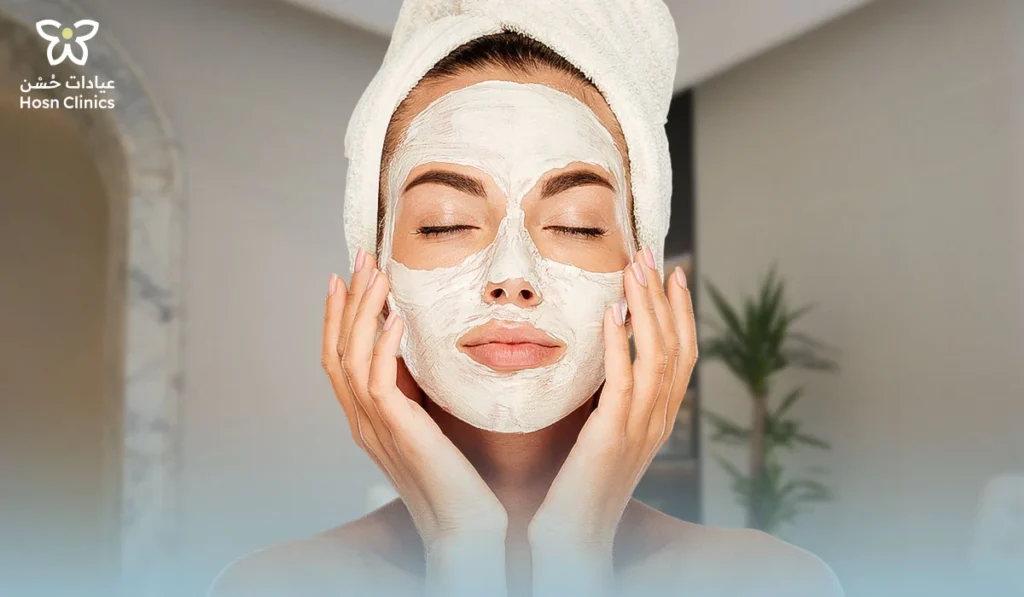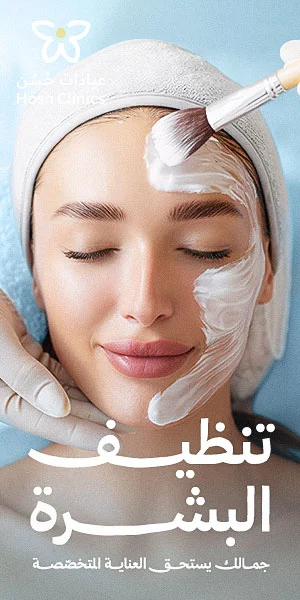Skincare Best Practices: Daily Tips for Maintaining Healthy Skin
Skincare Best Practices: Daily Tips for Maintaining Healthy Skin

Maintaining healthy, glowing skin isn't just a matter of aesthetics; it's about feeling comfortable in your own skin and improving your overall health. Healthy skin not only boosts self-confidence but also plays a vital role in your body's defense mechanisms. Let's review the best skincare practices you can incorporate into your daily routine for glowing skin.
Why is skin care important?
Your skin is your body's largest organ, covering and protecting everything inside. It acts as your first line of defense against environmental aggressors such as pollution, UV rays, and harmful microorganisms. Healthy skin acts as a strong barrier that prevents bacteria, viruses, and other toxins from penetrating deep into the body.
Additionally, maintaining healthy skin reduces the likelihood of common problems like dryness, acne, and sensitivity. Skin also helps regulate body temperature and prevent excess water loss, leaving you more hydrated and comfortable. Therefore, investing in proper skin care isn't just a cosmetic concern; it's a step toward a healthy, balanced lifestyle.
How does skin reflect the overall health of the body?
Your skin is a window into your inner health, often revealing signs of underlying health conditions before other symptoms appear. For example, dull or flaky skin could indicate dehydration, while sudden breakouts could be a response to stress or hormonal imbalances. Dark circles under the eyes could indicate lack of sleep or poor circulation, and persistent rashes could be a sign of an allergic reaction or autoimmune condition.
Furthermore, the nutrients you consume directly impact your skin. Eating a diet rich in vitamins and antioxidants often results in radiant skin, while poor nutrition can lead to sagging skin, wrinkles, or spots. In this way, your skin acts as a visual guide to help you understand what's going on inside your body, making skincare not just about appearance but also about understanding your overall health.
Understanding your skin type
Knowing your skin type is like understanding the foundation of a house; it determines the structure and routine of your skincare routine. Determining whether your skin is dry, oily, combination, or sensitive is essential for choosing products that address its unique needs. Using the wrong products can do more harm than good, leading to irritation, breakouts, or an unbalanced complexion.
Common skin types: dry, oily, combination, and sensitive
- dry skin:
It often feels tight and appears dull or flaky due to a lack of hydration. You may be more prone to fine lines and sensitivity, especially in harsh weather conditions. - oily skin:
It is characterized by excessive sebum production, which makes it appear shiny, especially in the T-zone (forehead, nose, and chin). You may be more prone to acne and enlarged pores. - combination skin:
As the name suggests, it combines oily and dry areas. The T-zone may be oily, while the cheeks and other areas may be dry or normal. - sensitive skin:
You are easily irritated by certain products or environmental factors, and you may experience redness, itching, or discomfort.
How to determine your skin type
Determining your skin type doesn't require expensive tests; simple observation can provide valuable insights:
- Wash and wait test:
- Wash your face with a gentle cleanser and wait an hour without applying any products. Note how your skin feels.
- If it feels tight or flaky, your skin is likely dry.
- If it looks shiny all over, it's oily.
- If your T-zone is shiny while the rest of your face is normal or dry, you have combination skin.
- If you notice redness, irritation, or itching, your skin may be sensitive.
- Wash your face with a gentle cleanser and wait an hour without applying any products. Note how your skin feels.
- Blotting paper test:
- Use blotting paper on different areas of your face.
- If the paper stays clean, your skin is dry.
- If oil is absorbed everywhere, your skin is oily.
- If the oil is only absorbed in the T-zone, you have combination skin.
- Use blotting paper on different areas of your face.
Adapt your skincare routine based on your skin type.
Understanding these traits will help you customize your skincare routine effectively:
- Those with oily skin may benefit from light, oil-free products.
- Those with dry skin should choose products that are moisturizing and rich in emollients.
- Sensitive skin requires extra care and often prefers fragrance-free and hypoallergenic formulas.
Building an Effective Skincare Routine
Creating a skincare routine that works for you is like crafting a recipe for glowing skin. It's all about choosing the right ingredients and following a consistent process. Your skin's needs differ between morning and evening, so it's essential to adjust your routine accordingly.
Morning vs. Evening Routine
- Morning routine:
Your morning routine focuses on: Protection and hydrationYou prepare your skin to face environmental factors like sunlight and pollution. - Evening routine:
In contrast, your evening routine focuses on: Cleansing, repairing, and rejuvenating the skin While you sleep.
Step 1: Cleaning
- Choosing the right cleaner
The foundation of any effective skincare routine is good cleanerLook for gentle, non-abrasive cleansers that remove dirt and impurities without disrupting your skin's natural barrier. Avoid harsh soaps, which can dry out, irritate, or trigger excess oil production. - Correct cleaning techniques
Cleansing is more than just splashing water on your face. Use lukewarm water—hot water can strip your skin of its natural oils—and apply the cleanser with clean hands. Massage it in circular motions for about 30 seconds to ensure a thorough cleanse. Don't rub too hard; your skin isn't a stubborn stain that needs to be removed!
Step 2: Toner
- Benefits of a good toner
Toner may seem like an optional step, but it plays a vital role in your skincare routine. A good toner helps balancing pH levels For your skin, which may be affected during cleansing, it also removes any remaining impurities and prepares your skin to absorb moisturizers and serums more effectively. - Choosing the right toner
Look for an alcohol-free toner to avoid dryness. If you have oily or acne-prone skin, choose toners containing ingredients like salicylic acid or witch hazel. Sensitive skin needs soothing ingredients like chamomile or aloe vera.
Step 3: Moisturize
- Moisturizing for every skin type
Moisturizing It's an essential ingredient, regardless of your skin type. Many people with oily skin skip this step, but this can lead to increased oil production as your skin compensates for the lack of moisture.- For oily or acne-prone skin: Choose light, non-comedogenic moisturizers that won't clog pores.
- For dry skin: Choose rich, oil-based creams for deep hydration.
- For combination skin: Combination skin can benefit from gel moisturizers that hydrate without being heavy.
Step 4: Sun protection
- Why sunscreen is non-negotiable
Consider sunscreen a shield for your skin. It protects against harmful UV rays that can cause premature aging, dark spots, and even skin cancer. No matter the weather, sunscreen should be part of your morning routine. - Choosing the right sunscreen
Choose a broad spectrum sunscreen that contains: SPF 30 Apply sunscreen at least every two hours if you're outdoors. If you wear makeup, choose a light, non-greasy sunscreen that blends in with your other products. Applying sunscreen daily is the most effective way to maintain youthful, healthy skin for years to come. It's not just about avoiding sunburn; it's about long-term skin health.
Nutrition and hydration for healthy skin
Beautiful skin isn't just about what you put on it; it's also about what you put in your body. Balanced nutrition and proper hydration play a vital role in maintaining healthy, glowing skin. Think of your skin as a reflection of your inner health—what you eat and drink greatly impacts its appearance.
Foods for Glowing Skin
Your diet is like fuel for your skin's natural glow. Certain nutrients work wonders in promoting healthy, clear skin:
- fruits and vegetables: Citrus fruits like oranges and strawberries are packed with vitamin C, which aids in collagen production. Leafy greens like spinach and kale are rich in antioxidants that fight free radicals.
- healthy fats: Foods like avocados, nuts, and seeds provide essential fatty acids that keep your skin supple and moisturized.
- Omega-3 fatty acids: Found in fatty fish like salmon and mackerel, omega-3s help reduce inflammation and prevent acne.
- Foods rich in zinc: Legumes, pumpkin seeds, and whole grains promote wound healing and regulate oil production.
- Probiotic foods: Yogurt and other probiotic-rich foods improve gut health, which directly impacts skin clarity and texture.
Incorporating these foods into your diet is like giving your skin a nutrient-rich spa treatment from within.
The role of antioxidants and vitamins
Antioxidants act as protectors for your skin, neutralizing damage caused by free radicals from pollution, sun, and stress. Vitamins are the unsung heroes of skin health:
- Vitamin C: Boosts collagen production, lightens skin tone, and reduces dark spots.
- Vitamin E: A powerful antioxidant that protects the skin from UV damage and keeps it moisturized.
- Vitamin A (retinoid): Promotes cell renewal, keeping skin smooth and youthful.
- beta-carotene:Found in carrots and sweet potatoes, it converts to vitamin A and enhances skin elasticity.
- Selenium: This mineral, found in Brazil nuts and eggs, supports skin elasticity and prevents damage.
Adding these vitamins and antioxidants to your daily diet can boost your skin's glow and elasticity.
The importance of maintaining hydration
Think of your skin like a plant—without water, it wilts and loses its vitality. Staying hydrated is one of the simplest and most important ways to maintain plump, youthful skin. Water plays several crucial roles:
- detoxification: Moisturizing helps flush waste from the body, which can appear as dull skin or breakouts.
- Improve flexibility: Well-hydrated skin is less prone to wrinkles and sagging.
- Prevent dehydration: Drinking enough water keeps your skin soft and prevents it from becoming flaky.
- Promote blood flow: Proper hydration ensures effective blood circulation, giving your skin a natural, healthy glow.
In addition to plain water, you can stay hydrated by consuming fruits and vegetables with a high water content, such as cucumbers, watermelon, and celery. Herbal tea and coconut water are also great options for increasing hydration levels.
When to consult a dermatologist
Taking care of your skin at home is important, but sometimes it's necessary to seek professional help. Knowing when to consult a dermatologist can make a big difference in maintaining your skin's health and addressing problems before they worsen.
Signs of skin problems that require medical advice
Your skin often sends out signals when all is not well. While some problems can be treated with over-the-counter products, others require the expertise of a dermatologist. Here are some key signs that indicate you need to see a doctor:
- persistent redness or irritation: If redness, rash, or itching persists and doesn't go away with basic skin care or over-the-counter treatments, it could be a sign of conditions such as rosacea, eczema, or an allergic reaction.
- stubborn acne: When acne becomes severe, painful, or leaves scars, it's time to consult a dermatologist. Prescription treatments can effectively treat hormonal imbalances, cystic acne, or chronic pimples.
- moles or changing spots: Watch for moles that change in size, shape, or color. These changes could be signs of skin cancer and require immediate attention.
- unexplained skin conditions: Conditions such as psoriasis, fungal infections, or unusual pimples require professional diagnosis and targeted treatment.
- non-healing wounds: If a wound, cut, or sore does not heal within a few weeks, it may be a sign of an underlying health problem that needs to be evaluated.
By treating these signs early, you can prevent potential complications and maintain healthy skin.
Professional treatments worth considering
Dermatologists offer a wide range of advanced treatments that can address skin problems more effectively than at-home methods. Here are some treatments they may recommend based on your needs:
- Chemical skin peeling: These exfoliating treatments remove dead skin cells, reduce fine lines, and improve skin tone and texture. They are particularly effective in treating acne scars, pigmentation, and dullness.
- Microdermabrasion: A non-surgical procedure that exfoliates the outer layer of your skin, revealing smoother, brighter skin. It's great for treating minor imperfections like uneven skin tone or enlarged pores.
- Laser treatment: Ideal for treating stubborn issues like sunspots, redness, or unwanted hair. The laser can also boost collagen production, which helps reduce wrinkles and improve skin elasticity.
- Injections: Treatments such as Botox or fillers can treat wrinkles and restore volume to areas that have lost elasticity over time.
- Prescription medications: To treat severe acne, rosacea, or other chronic conditions, your dermatologist may prescribe topical or oral medications tailored to your skin's needs.
- skin cancer screening: Regular screenings can help detect skin cancer early when it is more treatable.
Professional treatments are a great addition to your daily skincare routine, providing deeper, more lasting results for a variety of issues.
Conclusion
Achieving and maintaining healthy, radiant skin is a journey that requires a combination of proper care, healthy habits, and informed choices. By understanding your skin type, you can customize a routine that works for you and ensures your skin receives the care it needs. A regular, well-planned skincare routine, which includes cleansing, toning, moisturizing, and sun protection, forms the foundation for healthy skin.
Nutrition and hydration also play a major role in your skin's appearance. A diet rich in antioxidants, vitamins, and omega-3 fatty acids, along with drinking enough water, helps nourish your skin from the inside out, enhancing its natural glow. Meanwhile, lifestyle changes such as managing stress, getting enough sleep, and avoiding harmful habits like smoking can further support your skin's vitality.
While daily care is essential, it's also important to know when to seek professional help. Dermatologists can address persistent issues, provide personalized treatments, and help you deal with more complex problems. Advanced procedures such as chemical peels, microdermabrasion, and laser treatments can effectively target specific issues, delivering results that home care may not achieve.
Ultimately, taking care of your skin isn't just about beauty—it's a holistic approach that supports your overall health. With consistent effort, informed choices, and occasional professional guidance, you can maintain skin that's not only beautiful but also reflects your health and vitality. So, take the time to invest in your skin—you'll thank yourself for it in the years to come!
Book an appointment




Offers
Make an Appointment Today













